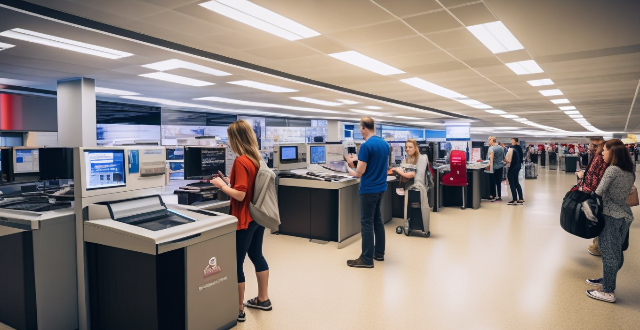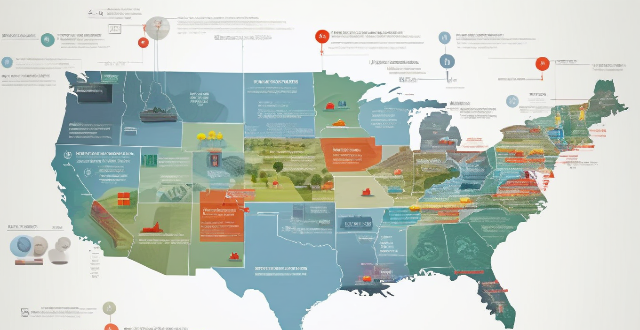Ticket Visa

Is it necessary to have a return ticket for a tourist visa application ?
The text discusses the importance of a return ticket for a tourist visa application. It states that a return ticket is necessary to ensure the traveler has plans to return to their home country after the completion of their trip. Other documents required for a tourist visa application include a valid passport, hotel reservation, travel itinerary, financial evidence, invitation letter, travel insurance, application form, and photo. The return ticket is considered important as it shows the embassy or consulate that the traveler plans to return to their home country after their trip, reduces the chances of overstaying their visa period, assures the authorities of departure arrangements, and maintains the integrity of visa policies. If a traveler cannot provide a return ticket at the time of application, there is a high probability of visa rejection. However, an onward journey ticket can be provided as an alternative. Alternatives to a return ticket include one-way tickets, open-ended tickets, refundable tickets, and onward journey tickets. To ensure the availability of a return ticket, travelers should book in advance, choose flexible dates, opt for refundable tickets, and check with airlines about their policies. Not providing a return ticket can lead to visa rejection, blacklisting, impact future applications, and financial losses. Travel agents can assist in getting a return ticket or suggesting alternatives but may charge additional fees.

How much does it cost to obtain a tourist visa ?
This detailed guide outlines the cost implications and requirements for obtaining a tourist visa to the People's Republic of China as of July 2024, using the process in the United States as an example. The guide covers visa types, required documents, additional requirements, cost implications, and the application procedure. It also highlights recent simplifications in the document requirements and emphasizes the importance of meeting all specified requirements and being prepared for associated costs.

Can I extend my tourist visa once I arrive in the country ?
This article discusses whether it is possible to extend a tourist visa once arriving in a foreign country. It outlines eligibility criteria, steps to follow for extending the visa, and things to keep in mind while considering an extension. The main points include checking purpose of visit, duration of stay, financial capacity, health and safety; gathering required documents; contacting immigration authorities; attending interview (if required); paying fees (if applicable); waiting for approval; obtaining extended visa; timely application; adhering to laws and regulations; seeking professional help if needed.

What are the requirements for a tourist visa ?
The article provides a comprehensive list of general requirements for obtaining a tourist visa, which include having a valid passport, completing a visa application form, providing recent photographs, presenting a detailed travel itinerary, demonstrating financial stability, possessing health insurance, submitting an invitation letter if applicable, explaining the purpose of visit, and possibly offering a police clearance certificate. It emphasizes the importance of checking with the embassy or consulate of the destination country for specific instructions due to variations in requirements among different nations.

What is the validity period of a tourist visa ?
The validity period of a tourist visa varies depending on the country's immigration policies and the type of visa issued. There are two main types of tourist visas: single-entry and multiple-entry. Short-term tourist visas typically have a validity period of up to 90 days, while long-term tourist visas have a validity period of more than 90 days. Several factors can affect the validity period of a tourist visa, including the applicant's nationality, purpose of visit, financial status, and immigration history. It is essential to check the specific requirements and conditions before applying for a tourist visa.

How long does it take to process a travel visa ?
The time it takes to process a travel visa can vary significantly depending on several factors, including the country you are applying for the visa, your nationality, the type of visa you are applying for, and how quickly you are able to submit the required documents and information. It is important to research the specific visa processing time for the country you are applying for the visa, as well as your nationality, the type of visa you are applying for, and how quickly you are able to submit the required documents and information. By taking these factors into account, you can better plan for your travel visa application process.

How can I check the status of my tourist visa application ?
Checking the status of your tourist visa application can be a nerve-wracking experience, especially when you're eagerly anticipating your travel plans. Here's a step-by-step guide to help you through the process: 1. Determine the type of visa you applied for, as different visas might have different checking procedures. 2. Locate the appropriate government website or portal dedicated to visa services where you can check the status of your application. 3. Have your application details ready, such as Application ID Number, Passport Number, and Date of Birth. 4. Enter the required details into the online system on the visa status portal. 5. Submit the form and retrieve the status of your visa application. 6. Interpret the status message, which could indicate that your application has been accepted, is under review, requires administrative processing, has been issued, or has been refused. 7. Follow up if necessary with the embassy or consulate for any delays or further action required. Additional tips include keeping track of timelines, being patient as visa processing times can vary, and staying informed about any events that might affect processing times. By following these steps, you should be able to effectively check the status of your tourist visa application and plan accordingly.

Can I apply for a tourist visa online ?
Applying for a tourist visa online is convenient and efficient, with requirements including a valid passport and proof of funds. The process involves filling out an electronic form and uploading supporting documents. Payment is typically required through a secure gateway, and approval may require additional documentation or an interview. Processing times vary, so it's important to apply well in advance of travel.

What documents do I need to provide for a tourist visa application ?
The text provides a list of essential documents required for a tourist visa application, including a passport with at least six months' validity and two blank visa pages, recent passport photographs meeting specific requirements, a completed visa application form, a detailed travel itinerary, proof of financial means, an invitation letter if applicable, travel insurance, and a cover letter explaining the purpose of the visit. The text emphasizes the importance of gathering these documents beforehand to make the application process smoother and increase the chances of success. It also notes that specific requirements may vary by country, so applicants should check the documentation needs and specifications for each item.

Do I need a visa if I'm only staying in the country for a few hours ?
Do I Need a Visa If I'm Only Staying in the Country for a Few Hours? Traveling to a foreign country often involves understanding the visa requirements, even if your stay is only for a few hours. The need for a visa depends on factors such as the purpose of your visit, the duration of your stay, and the specific regulations of the country you are visiting. Some countries offer visa exemptions for brief transit stays, especially if you remain in the airport and do not enter the country's territory. For business meetings or other activities that require leaving the airport, a visa may be necessary regardless of the duration. Countries often have specific rules for visits shorter than 24 hours or even up to 90 days, which may affect visa requirements. Generally, if your stay exceeds the short-term visit limit, a visa will be required. Some countries have agreements that allow citizens of certain nations to enter without a visa for short periods. For layovers or connecting flights, some countries issue transit visas that allow limited time within the country or its airports. To determine visa requirements, research the country's visa policy, consult with the airline, check travel advisories, and contact the embassy directly if unsure. Whether you need a visa for a short stay largely depends on the country's immigration policies and the purpose of your visit. It is essential to research and understand these requirements before traveling to avoid any complications at border control.

How does the growth of technology affect the business aspects of sports, such as ticket sales and broadcasting rights ?
The growth of technology has significantly transformed various aspects of business, including sports. Technology has revolutionized how activities like ticket sales and broadcasting rights are conducted, creating new opportunities for revenue generation and enhancing the fan experience. In this article, we will explore the ways in which technology has affected the business aspects of sports. One of the most significant impacts of technology on ticket sales is the emergence of online platforms. These platforms have made it easier for fans to purchase tickets from anywhere in the world, at any time. They also provide a more convenient and secure way of buying tickets, reducing the risk of fraud or counterfeit tickets. Mobile applications have also played a crucial role in transforming ticket sales. Fans can now purchase tickets directly from their smartphones, making the process even more convenient. Additionally, some apps offer features such as virtual ticket wallets, allowing fans to store their tickets digitally and access them easily on game day. Technology has also enabled the implementation of dynamic pricing models for sports tickets. This approach involves adjusting ticket prices based on factors such as demand, opponent, and time remaining until the event. By using data analytics tools, teams and organizations can optimize their pricing strategies to maximize revenue while still providing fair prices for fans. The rise of streaming services has had a profound impact on the broadcasting rights industry. These platforms allow fans to watch live sports events from anywhere with an internet connection, expanding the potential audience for sporting events. As a result, broadcasting rights fees have increased significantly, generating substantial revenue for sports leagues and organizations. Technology has also enhanced the viewing experience for fans through interactive features integrated into broadcasts. These features include things like real-time statistics, social media integration, and alternate camera angles. By providing a more engaging and personalized viewing experience, these technologies help attract and retain viewers, further increasing the value of broadcasting rights. Finally, advancements in virtual reality (VR) and augmented reality (AR) technologies are beginning to influence the broadcasting rights landscape. These technologies offer new ways for fans to experience sports events, such as virtual attendance or immersive replays. As these technologies become more widespread and affordable, they could potentially create additional revenue streams for sports organizations through specialized content offerings. In conclusion, the growth of technology has had a profound impact on the business aspects of sports, particularly in areas like ticket sales and broadcasting rights. By embracing these advancements and adapting their strategies accordingly, sports organizations can continue to thrive in an increasingly competitive marketplace while providing fans with unprecedented access and engagement opportunities.

What changes have been made to New Zealand's immigration policy recently ?
New Zealand's recent immigration policy changes aim to address labor shortage and promote economic growth by creating a new visa category, increasing residence visa allocation, simplifying the application process, offering greater flexibility for international students, and reducing processing times.

How does Japan manage its immigration with its strict policies ?
Japan's Immigration Management with Strict Policies Japan maintains strict immigration policies to protect its cultural identity and ensure the smooth integration of immigrants into society. These policies include visa requirements, a points-based system for evaluating foreign workers, a residence card system, employment regulations, and language requirements. Foreign nationals must obtain a visa unless exempt, and there are different types of visas depending on the purpose of visit. The points-based system assigns eligibility based on factors like age, education, experience, and language skills. Once in Japan, foreigners must register their residence within 90 days and carry a Residence Card at all times. Employers must comply with laws regarding foreign workers' wages, hours, and safety standards. Language proficiency is often required for work or study visas to facilitate communication and integration into Japanese society. Overall, these measures aim to manage immigration legally and harmoniously while contributing positively to Japan's economy and society.

What is the correlation between immigration policies and entrepreneurship ?
Immigration policies significantly impact entrepreneurship by influencing talent access, regulatory environments, cultural diversity, and economic opportunities. Talent-friendly policies like Canada's Express Entry System and the U.S. H-1B Visa attract skilled immigrants, enhancing competitiveness. Supportive regulatory frameworks, such as Australia's Business Innovation and Investment Program and the UK's Tier 1 Entrepreneur Visa, simplify business establishment processes. Diversity-promoting policies, like New Zealand's Residence Programme and Germany's Blue Card EU, foster innovative solutions through varied perspectives. Economic opportunities arise from policies like Sweden's Startup Visa and Ireland's Startup Entrepreneur Programme, which create market gaps and support immigrant entrepreneurs. Governments should implement policies encouraging entrepreneurship among immigrants and local populations.

How do I get tickets for an idol concert ?
The article provides a comprehensive guide on how to obtain tickets for an idol concert. It outlines five main steps: researching concert details, preparation, being ready on sale day, exploring alternative methods, and employing additional tips and tricks. The first step involves gathering information about the concert date, time, venue, ticket prices, and on-sale details. Preparation includes creating accounts on ticketing platforms, having payment methods ready, ensuring a stable internet connection, and using multiple devices. On sale day, one should log in early, refresh continuously, and make a quick transaction. Alternative methods include purchasing at the box office, looking out for official presales, buying from authorized resellers, and checking for last-minute releases. Additional tips involve joining fan clubs, following social media for exclusive presales, and avoiding scams by only buying from authorized sellers. By following these steps and being persistent, one can increase their chances of securing tickets to see their favorite idol perform live.

What are some innovative ways sports event organizers have used to engage fans and increase revenue ?
Innovative Ways Sports Event Organizers Engage Fans and Increase Revenue Sports event organizers are always looking for innovative ways to engage fans and increase revenue. This is crucial for the success of their events, as it ensures high attendance rates and maximizes profits. Some of the most effective strategies that have been implemented in recent years include interactive experiences like virtual reality (VR) and augmented reality (AR), mobile apps with live streaming and social media integration, enhanced stadium experiences with Wi-Fi connectivity and unique concessions, ticket pricing strategies like dynamic pricing and season tickets/membership programs, and marketing initiatives like sponsorships/partnerships, targeted advertising, and influencer collaborations. By continuing to explore new ideas and technologies, sports event organizers can ensure the continued growth and success of their events.

What is the impact of Brexit on UK immigration policies ?
Brexit has had a significant impact on UK immigration policies, including the end of free movement for EU citizens, the introduction of a points-based immigration system, a settled status scheme for EU citizens, changes in student visa policies, and increased scrutiny of immigration applications. These changes reflect the UK government's desire to regain control over its borders and shape its immigration policies according to national interests.

What impact do stricter immigration policies have on family reunification ?
Stricter immigration policies have a significant impact on family reunification, causing delays, increased costs, limited opportunities, negative socio-economic impacts, and challenges for children. Policymakers should consider these consequences when developing and implementing immigration policies that affect families.

Are there any restrictions on who can shop at duty-free stores ?
Duty-free shopping offers savings for international travelers, but not everyone can shop tax-free. Eligibility criteria include traveling internationally, being a departing or arriving passenger, having connecting flights outside the country, and complying with quantity limits and customs regulations. Restrictions may apply based on age, nationality, transit status, visa requirements, and security concerns. Understanding these guidelines helps travelers make the most of duty-free opportunities.

What are the latest immigration policies in the United States ?
The latest immigration policies in the United States have been evolving and changing rapidly. Key updates include the public charge rule, asylum policy changes, DACA renewal fees, visa restrictions for pregnant women, travel ban expansion, and migrant children at the border. These policies reflect a trend towards stricter enforcement and restrictions on both legal and illegal immigration. Advocates argue that these policies harm vulnerable populations and undermine America's historical reputation as a nation of immigrants.

How much does it cost to go to an idol concert ?
Attending an idol concert can be costly due to various factors such as ticket prices, travel expenses, merchandise costs, and additional fees. To manage these expenses, it's recommended to set a budget, compare prices, take advantage of group discounts, bring your own snacks, and consider the resale market for tickets.

What banks and credit card providers support Apple Pay ?
Apple Pay is a mobile payment and digital wallet service that works with Apple devices. It allows users to make secure purchases in person, in iOS apps, and on the web using Safari. Many banks and credit card providers support Apple Pay, including Bank of America, Capital One, Chase, Citi, Wells Fargo, American Express, Discover, MasterCard, and Visa. Adding your card to Apple Pay is a straightforward process involving opening the Wallet app, tapping the plus sign, and following the steps to add a new card. The availability of Apple Pay and the specific cards it supports may vary by country or region, so it's important to check with your bank or card issuer to confirm compatibility and get any necessary instructions.

What strategies can sports organizations employ to maximize revenue generation while maintaining fair competition within their respective leagues ?
Strategies for maximizing revenue generation in sports organizations include securing sponsorship and partnership deals, implementing dynamic ticket pricing models and fan loyalty programs, and managing player salaries and benefits effectively. These strategies aim to promote fair competition within leagues while generating additional revenue streams through corporate sponsorships, local business partnerships, media rights agreements, technology collaborations, merchandise partnerships, demand-based pricing, early bird discounts, package deals, rewards programs, membership clubs, community outreach programs, performance bonuses, contract incentives, health insurance and retirement plans, youth academy programs, college partnerships, and player loan programs.